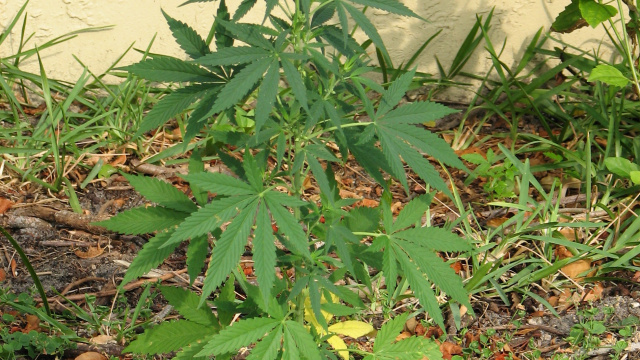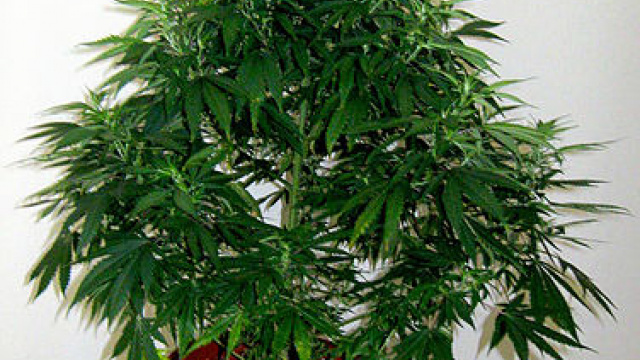 Prosecutors and police in Washington moved Friday to swiftly back away from enforcing marijuana prohibition, even though the drug remains illegal for another month.
Prosecutors and police in Washington moved Friday to swiftly back away from enforcing marijuana prohibition, even though the drug remains illegal for another month.
On Friday, the elected prosecutors of King and Pierce counties, the state’s two largest, announced they will dismiss more than 220 pending misdemeanor marijuana-possession cases, retroactively applying provisions of Initiative 502 that kick in Dec. 6.
In King County, Dan Satterberg said his staff will dismiss about 40 pending criminal charges, and will not file charges in another 135 pending cases. Pierce County Prosecutor Mark Lindquist said he will dismiss about four dozen cases in which simple marijuana possession was the only offense.
“I think when the people voted to change the policy, they weren’t focused on when the effective date of the new policy would be. They spoke loudly and clearly that we should not treat small amounts of marijuana as an offense,” Satterberg said.
The Seattle police and King County sheriff also announced Friday their departments would no longer arrest people for having an ounce or less of marijuana, the amount decriminalized by Initiative 502, which passed Tuesday.
The quick pivot by law enforcement reflects Tuesday’s unambiguous vote in which 20 of the state’s 39 counties endorsed I-502, 55 to 45 percent.
Misdemeanor marijuana possession had not been a police priority in Seattle for years, but a study released in October found it was elsewhere: more than 241,000 people statewide were arrested for possession over the past 25 years, at an estimated cost of more than $305 million.
I-502 campaign manager Alison Holcomb said the decision by police and prosecutors affirms the campaign’s argument that legalization would shift law-enforcement priorities.
“If 502 hadn’t passed, we’d see the same amount of marijuana possession cases every year,” said Holcomb. “What makes a difference is changing the law.”
“People Have Spoken”
In interviews, Satterberg and Lindquist said their decisions do not amount to a free pass for marijuana, and the number of cases were so small that it won’t save much money. But both said their decision reflected the voters’ intent in passing I-502′s decriminalization of marijuana for people 21 and over, and for an ounce or less.
The affected cases in King County involve arrests in unincorporated King County, on state highways or at the University of Washington. Satterberg said his staff will continue to prosecute felony marijuana cases, but found, “There is no point in continuing to seek criminal penalties for conduct that will be legal next month.”
Lindquist agreed. “The people have spoken through this initiative,” he said. “And as a practical matter, I don’t think you could sell a simple marijuana case to a jury after this initiative passed.”
The maximum penalties for misdemeanor marijuana possession are 90 days in jail, with one day mandatory, and a $1,000 fine, although most cases are resolved for less.
Snohomish County Prosecutor Mark Roe said in an email that his staff had put marijuana cases “on hold” before the election, and will decide how to handle them after speaking with other prosecutors at an upcoming meeting.
After budget cuts, Roe said his staff has focused on more serious cases. “It simply hasn’t been a big part of our work,” he said.
“Equitable Decision”
Prosecutors across the state will decide whether charging possession cases would be contrary to “the new known intent of the law,” said Tom McBride, executive director of the Washington Association of Prosecuting Attorneys.
He doubted that prosecutors would agree to overturn existing marijuana possession convictions, and prosecutors could clearly enforce existing law up until Dec. 6. “It is an equitable decision, not necessarily a legal one,” he said.
Other agencies are also sorting out I-502′s implications. The UW and Western Washington University reaffirmed that marijuana use on campus would still be banned, even after Dec. 6, because of zero-tolerance strings attached to federal funding.
“While Western abides by all state laws, it also must follow all federal laws and I-502 creates a conflict between the two,” WWU said in a statement. “When state and federal laws are in conflict, federal law takes precedence.”
Because of that conflict, Satterberg said he expects federal authorities to sue to stop Washington from issuing marijuana retailing and growing licenses.
“It’s the kind of issue the U.S. Supreme Court will have a final word on,” Satterberg said. “It’s an important states’ rights issue.”
Source: Seattle Times (WA)
Author: Jonathan Martin, Seattle Times Staff Reporter
Published: November 9, 2012
Copyright: 2012 The Seattle Times Company
Contact: [email protected]
Website: http://www.seattletimes.com/



Leave a Reply